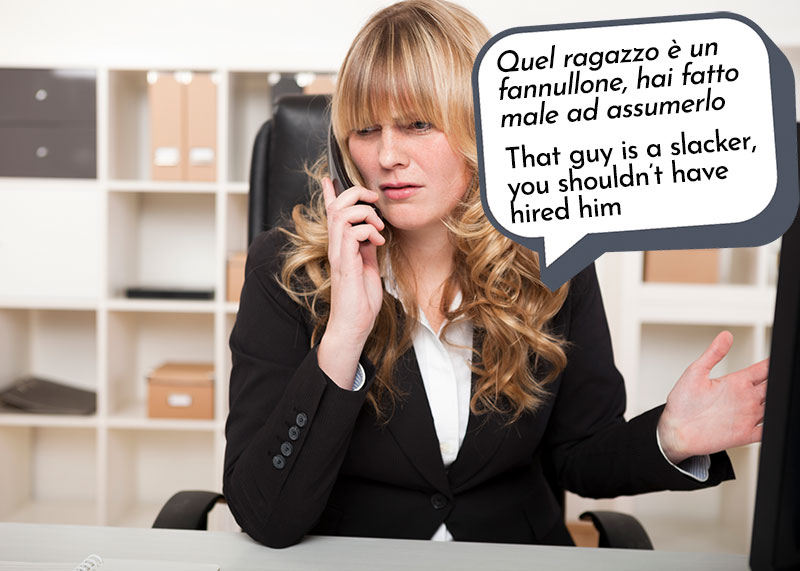If they tell you sei un fannullone (pronounced fahn-nool-loh-neh) you should either reconsider the people you hang with or your work ethics.
While fannullone may sound pretty funny, with all those double consonants and the –one ending — doesn’t it make you think of something cuddly?— its meaning is not that pleasant, especially when they use the word to talk about you.
In Italian, a fannullone is someone who, quite simply, doesn’t like to work, nor engage in any type of activity involving reflection or effort: a slacker, we would say in English.
The word is a relatively recent addition to the Italian dictionary, as it became popular around the mid-19th century. It comes from two other terms, the verb fare (to do) and the adverb nulla (nothing): so, literally, fannullone is someone who does nothing.
And I’ll tell you more! Because in Italian the –one ending is usually employed to indicate something big, it means that a fannullone is someone who does nothing to the Nth degree.
Fannullone can also be used for people who enjoy being lazy in their spare time: someone who just lives on front of the TV at weekends, à la Homer Simpson, although it’s usually more commonly used in a work context.
Fannullone has some very curious and funny synonyms, too. My favorite must be scansafatiche, which comes from the verb scansare (to dodge) and fatica (labor or effort): basically a person that dodges all efforts and work. By the way, if you decide to use it, just be aware that scansafatiche has only one form for all gender and numbers.
So, to make a long story short: if your Italian boss tells you sei un fannullone, you better work harder or start looking for another job, pronto!

Ha un esame domani e non ha aperto libro, Marco è un vero fannullone.
He has an exam tomorrow and he hasn’t opened a book yet: Marco is such a slacker.

Al weekend non fai altro che guardare la TV. Che fannullone!
All you do on the weekend is watching TV: you are so lazy!

Quel ragazzo è un fannullone, hai fatto male ad assumerlo.
That guy is a slacker, you shouldn’t have hired him.





























